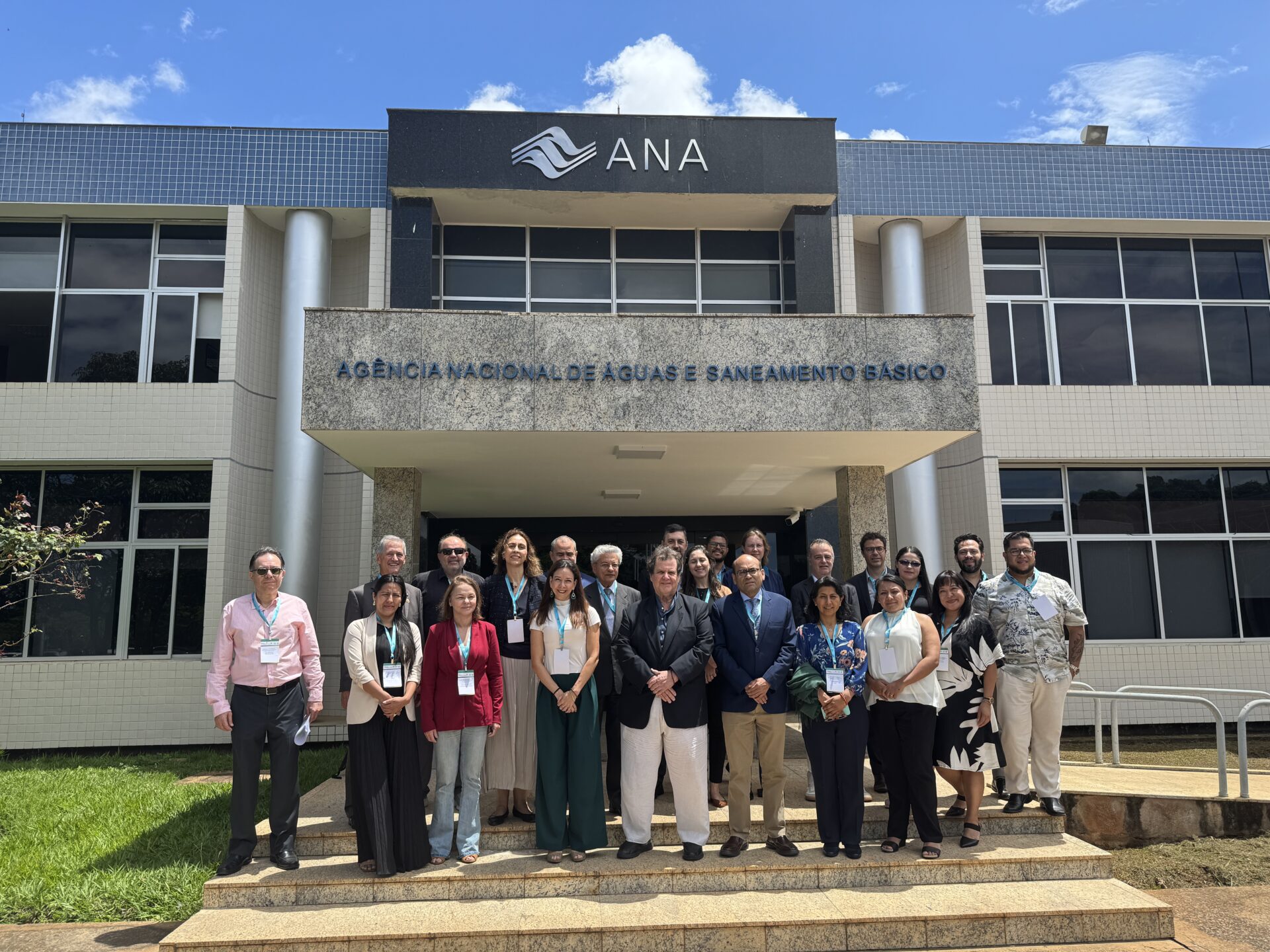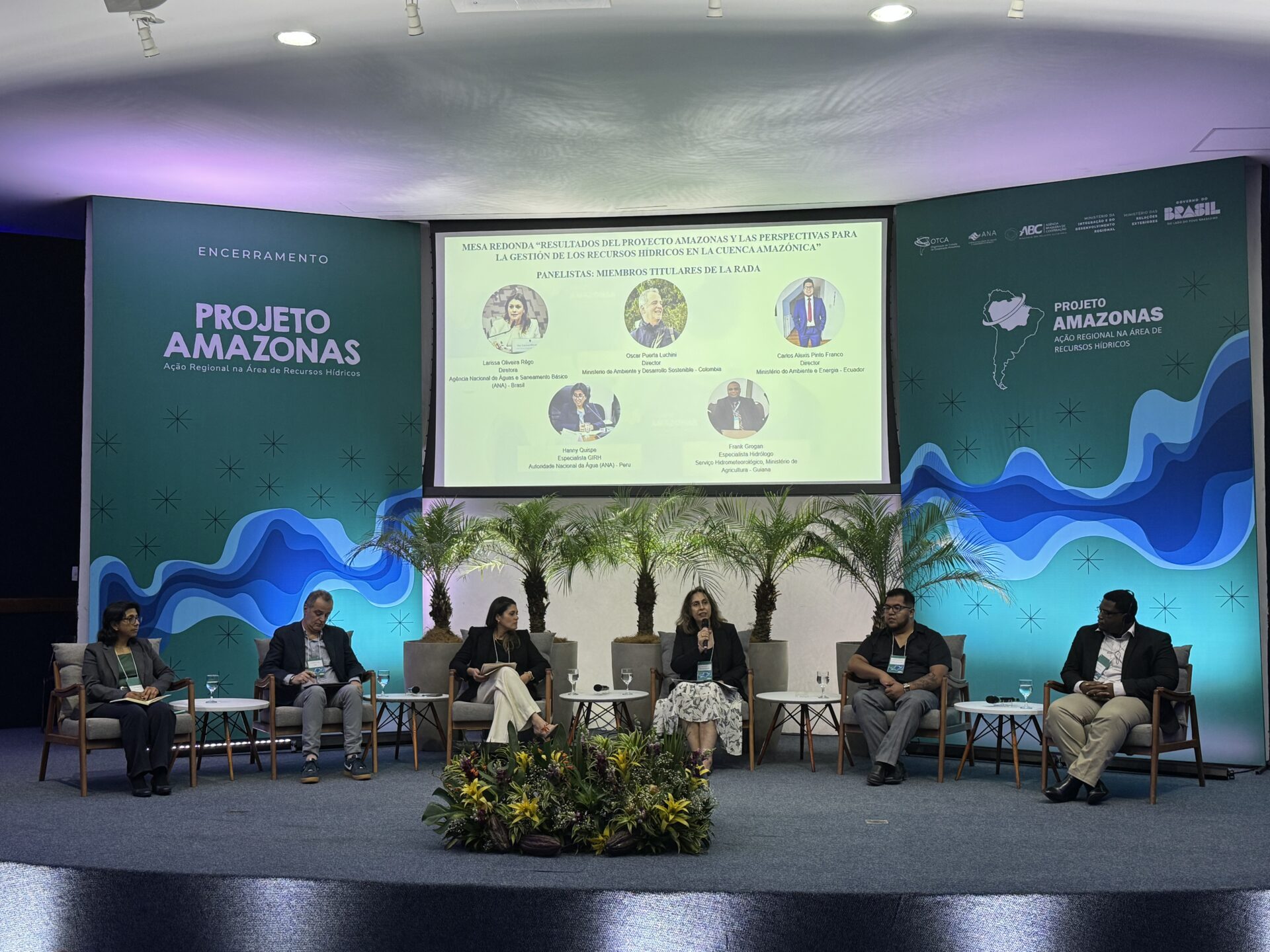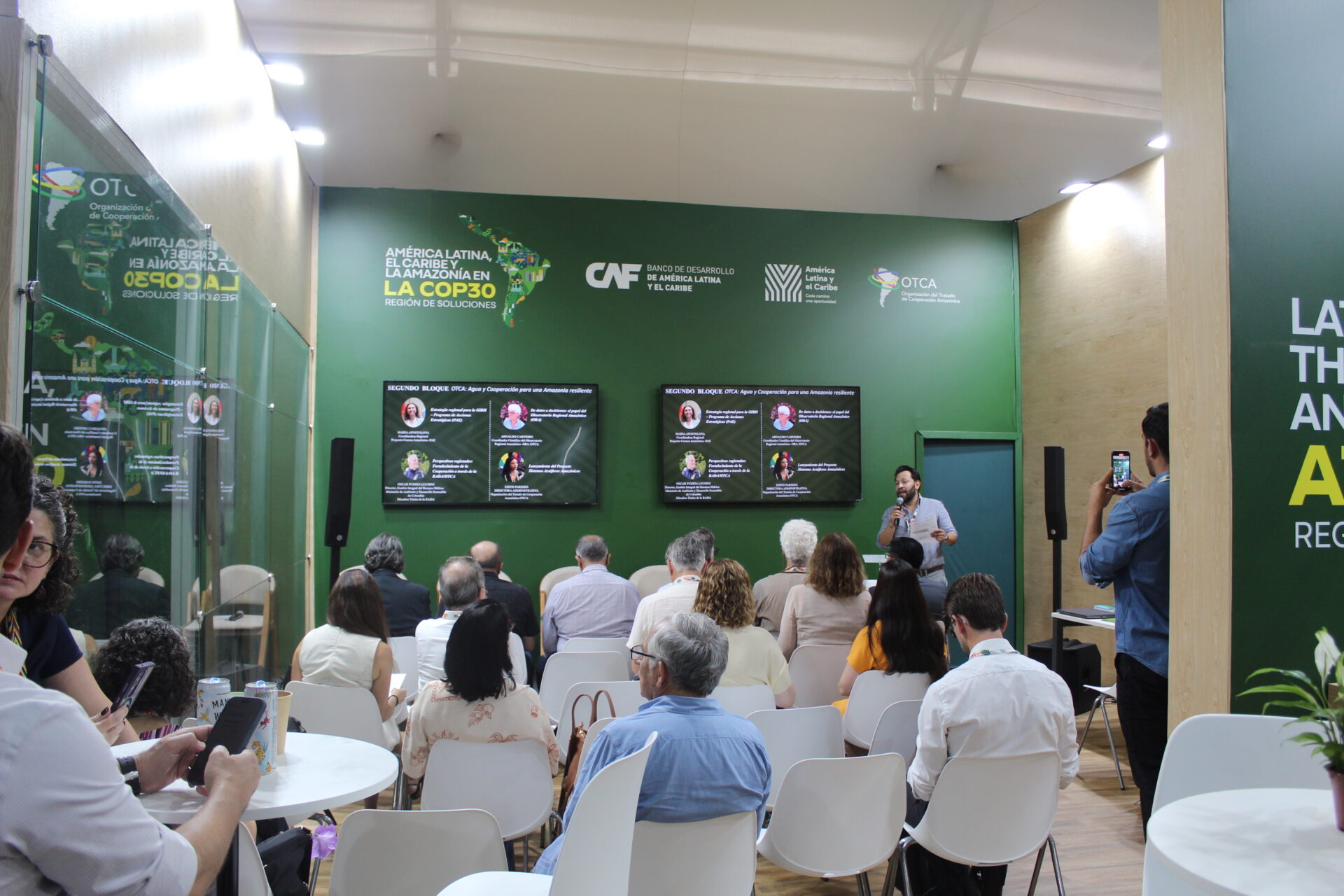Index
Topics
Amazon Basin Project Steering Committee, Amazon Cooperation Treaty Organization (ACTO), Amazon Regional Observatory (ORA), GEF - Fundo Global para o Meio Ambiente (FMAM), Institut de Recherche pour le Développement (IRD), Integrated Water Resource Management (IWRM), Intergovernmental Hydrological Program (IHP), UNESCO, United Nations Environment Programme (UNEP)
Share
Satellite for the Amazon
The eight Member Countries of the Amazon Cooperation Treaty Organization (ACTO) will participate in the Regional Workshop on Monitoring Water Resources of the Amazon Basin, where disruptive, innovative technologies on spatial hydrology will be presented in order to obtain complementary information to monitor the current and future dynamics of the world’s largest freshwater watershed, at a meeting to be held on February 28, at ACTO headquarters in Brasilia.
This workshop will take place within the framework of the priority actions agreed by the countries in the Strategic Actions Program (SAP), which has begun to be implemented as the main objective of the Amazon Basin Project, executed by ACTO and implemented by UNEP and financed by the GEF with substantial contributions from the countries.
This event will be chaired by Alexandra Moreira, ACTO Secretary General and will be attended by the Focal Points of the Amazon Basin Project Member Countries, representatives of UNEP-GEF, the World Meteorological Organization (WMO), the French Research Institute for Development (IRD), the Intergovernmental Hydrological Program (IHP) of UNESCO and the HYBAM Observation Service, an international observatory that measures climate change in the Andean-Amazon region.
The main topics to be addressed will be highlighted. The workshop will begin with a presentation with a regional vision on the integrated monitoring of water resources in the Amazon Region within the framework of the implementation of the strategic actions of the SAP.
This will be followed by a round of country presentations, where each Focal Point will have the opportunity to share their approaches on the transition from a national to a regional perspective on water resources monitoring in the Amazon, taking into account the institutional and regulatory aspects, monitoring and data exchange protocols, networks and satellite monitoring in each country.
Then, the topic of Water Resources Monitoring at the regional level managed by the ACTO will be presented, presenting the role of the Amazon Regional Observatory (ORA), which operates there, which also has the Amazon Hydrological Network, the Surface Water Quality Network. It will be a space to learn how the Amazon Basin water resources monitoring networks were established, showing an overview of water quality in the basin, the progress in the design of protocols for monitoring the basin’s water resources, while the Situation Room where the information is analyzed will be presented, as well as the presentation of the Forests Module, linked to water management.
UNEP will present the Indicators of the Transboundary Waters Assessment Programme (TWAP) of the Transboundary Waters Assessment Programme, which monitors 286 transboundary basins in the world.
Global water resources monitoring systems with a focus on satellite monitoring and new technologies will be presented and the workshop will be divided thematically into three parts.
Part 1. Hydrometeorological monitoring will begin with the presentation of the WMO Integrated Global Observing System (WIGOS) and the Hydrological Observing System (WHOS) and the presentation: Experiences and potential for implementation in the Amazon Basin, by the WMO representative.
For his part, the IRD representative will explain the topic Space Altimetry, Experiences and potentials in the use of disruptive tools and the launching of the SWOT (Surface Water and Ocean Topography) satellite, which will orbit around the Earth until 2026 to examine the Earth’s surface water.
On the topic of Surface Water Quality Monitoring, the UNEP representative will present on the Global Environmental Monitoring System for Freshwater (GEMS/Water) and the Global Water Quality Partnership. At the end of this second part of the event, satellite-based Water Quality and Surface Water Monitoring will be discussed by the representative of IHP UNESCO.
In the third part of the workshop, the central theme will be Monitoring of Erosion, Sediment Transport and Sedimentation, for which a presentation will be made on the Experiences and potentials in the application of disruptive tools for monitoring erosion and sediment transport in the Amazon, by the representative of IRD-HYBAM.
And to conclude this meeting on Monitoring of Water Resources in the Amazon Basin, attendees will participate in different working groups to analyze the potential of satellite monitoring for the Amazon Basin, considering various aspects such as hydro meteorological variables, water quality, erosion, sedimentation and sediment transport (ETS), the protocols to follow, thus facilitating the exchange of data.
The conclusions of the workshops, in which the Focal Points of the Amazon Basin Project will participate, will be submitted as recommendations of the countries to the Project Steering Committee (PSC), which will meet on March 1.
The Water Resources Monitoring Workshop will provide the countries with substantial information to expand their knowledge on monitoring Amazonian waters, detect early warnings of threats, among other issues, thus advancing in sustainable management oriented towards water security in the region.
Related news
Post
17 de December de 2025
On December 11, the Amazon Basin Project (ACTA/UNEP/GEF) held a Seminar on the Exchange of Cooperation Experiences for the Management [...]
Post
16 de December de 2025
The roundtable discussion “Results of the Amazon Project and Prospects for Water Resource Management in the Amazon Basin” was held [...]
Post
28 de November de 2025
Water is the central element through which most of the impacts of climate change manifest themselves: more intense droughts, extreme [...]




